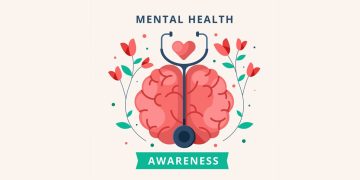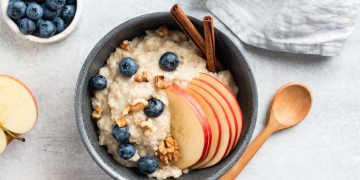In recent years, the popularity of plant-based eating has soared as individuals become increasingly aware of the health and environmental benefits of a vegan diet. Not only is a plant-based diet beneficial for the planet, but it can also provide numerous health benefits for those who choose to adopt this lifestyle. In this comprehensive guide, we will explore the power of plant-based eating and provide tips for creating a balanced vegan diet that promotes optimal health and wellness.
What is Plant-Based Eating?
Plant-based eating involves consuming foods derived from plants, such as fruits, vegetables, grains, legumes, nuts, and seeds, while excluding animal products like meat, dairy, and eggs. This diet is rich in essential nutrients like fiber, vitamins, minerals, and antioxidants, making it a great choice for overall health.
Benefits of a Plant-Based Diet
There are numerous benefits to incorporating plant-based foods into your diet, including:
1. Improved Heart Health: Plant-based diets are associated with lower levels of cholesterol and blood pressure, reducing the risk of heart disease.
2. Weight Management: Eating a plant-based diet can help you maintain a healthy weight and reduce the risk of obesity.
3. Lower Risk of Chronic Diseases: Studies have shown that plant-based diets can reduce the risk of developing chronic diseases like diabetes, cancer, and hypertension.
4. Environmental Sustainability: Plant-based diets have a lower carbon footprint compared to diets rich in animal products, making them a more sustainable choice for the planet.
Key Nutrients to Consider
While a plant-based diet can provide all the essential nutrients your body needs, it is important to pay attention to certain key nutrients to ensure you are meeting your nutritional needs. Some important nutrients to consider include:
1. Protein: Plant-based sources of protein include beans, lentils, tofu, tempeh, quinoa, and nuts.
2. Iron: Plant-based sources of iron include leafy greens, lentils, tofu, and fortified cereals.
3. Vitamin B12: Since vitamin B12 is primarily found in animal products, vegans may need to supplement or consume fortified foods to ensure an adequate intake.
4. Omega-3 Fatty Acids: Plant-based sources of omega-3 fatty acids include flaxseeds, chia seeds, walnuts, and hemp seeds.
Building a Balanced Vegan Diet
To ensure you are getting all the nutrients your body needs on a plant-based diet, it is important to create a balanced meal plan that includes a variety of plant-based foods. Here are some tips for building a balanced vegan diet:
1. Include a variety of fruits and vegetables in your diet to ensure you are getting a wide range of vitamins and minerals.
2. Incorporate plant-based sources of protein like beans, lentils, tofu, and tempeh into your meals.
3. Choose whole grains like quinoa, brown rice, and oats for fiber and complex carbohydrates.
4. Include healthy fats from sources like avocados, nuts, and seeds to support brain and heart health.
5. Don’t forget to hydrate! Drink plenty of water throughout the day to stay hydrated and support overall health.
Sample Vegan Meal Plan
To help you get started on your plant-based journey, here is a sample vegan meal plan to give you an idea of what a balanced day of eating looks like:
– Breakfast: Overnight oats topped with berries, nuts, and seeds
– Snack: Sliced cucumbers with hummus
– Lunch: Quinoa salad with mixed vegetables, chickpeas, and a lemon-tahini dressing
– Snack: Apple slices with almond butter
– Dinner: Lentil curry with brown rice and steamed broccoli
– Dessert: Vegan banana nice cream made with frozen bananas and almond milk
Tips for Success
Transitioning to a plant-based diet can be a rewarding and fulfilling experience, but it may also come with some challenges. Here are some tips to help you succeed on your vegan journey:
1. Start gradually: If you’re new to plant-based eating, start by incorporating more plant-based meals into your diet and gradually reduce your intake of animal products.
2. Get creative in the kitchen: Experiment with new recipes and ingredients to keep your meals exciting and delicious.
3. Plan ahead: Meal prepping can help you stay on track and make healthy choices throughout the week.
4. Listen to your body: Pay attention to how different foods make you feel and adjust your diet accordingly to meet your individual needs.
5. Seek support: Join online vegan communities or connect with other plant-based eaters for support, recipe ideas, and motivation.
Conclusion
In conclusion, unlocking the power of plant-based eating can lead to improved health and wellness for both you and the planet. By focusing on a balanced vegan diet that includes a variety of plant-based foods rich in nutrients, you can reap the numerous benefits of this lifestyle. Remember to pay attention to key nutrients, build a balanced meal plan, and incorporate tips for success to ensure a seamless transition to plant-based eating. With dedication and a little creativity in the kitchen, you can thrive on a vegan diet and experience optimal health and wellness for years to come.












































